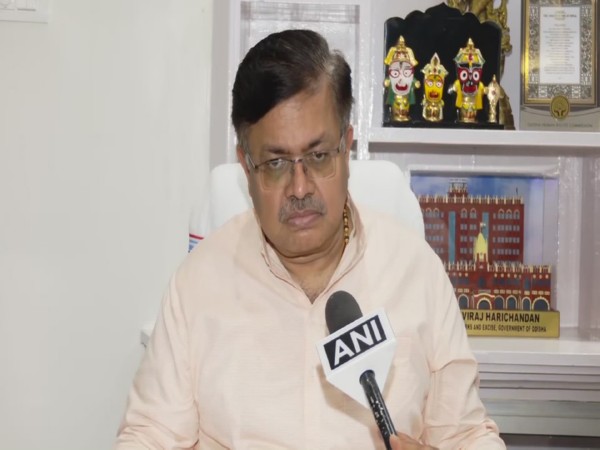3,85,000 died due to COVID-19, numbers likely to increase: Centre to SC
Jun 20, 2021

New Delhi [India], June 20 : The Central government, in an affidavit filed before the Supreme Court, said that the COVID-19 pandemic has caused more than 3,85,000 deaths, a number which is likely to increase further.
The Centre filed the affidavit before the Supreme Court while responding to the notice issued by the Apex Court on petitions filed by lawyers, Reepak Kansal and Gaurav Bansal, seeking immediate, necessary, effective and appropriate directions and orders to the concerned authorities, including the Central Government, to pay financial help or ex gratia amount of Rs 4 lakh, as laid down by the Central government in its statut to the family members of the deceased, who succumbed to Covid-19 pandemic.
"COVID-19 pandemic has caused more than 3,85,000 deaths, a number which is likely to increase further," the Centre in its affidavit said.
The Centre said that it exceeded the number of deaths in any other natural disaster in the past, in the country.
"These deaths have affected families from all classes - the rich and poor, professionals and informal workers, and trader and farmers. The Government is fully conscious of the need to provide them the necessary help and support. However, it is not correct to state that such support could be provided only through ex-gratia assistance for those who have died," the Centre said, in its affidavit filed before the Supreme Court.
"In the current context of the pandemic, it would be a rather pedantic and narrow approach. A broader approach, which involves health interventions, social protection, and economic recovery for the affected communities, would be a more prudent, responsible, and sustainable approach," read the affidavit.
It further said that globally, the Governments in other countries too have followed this approach, and have announced interventions that provide fiscal stimulus. The Government of India has followed a similar approach, the affidavit said.
"In the case of various disasters, for which such ex gratia is provided under SDRF norms, the disaster is of a short and finite duration, occurring and ending quickly. Covid-19, on the other hand, is a global pandemic, which has affected all the countries in the world. Within our country, it has affected all the States / Union Territories, which have experienced several waves of Covid-19 cases," the Central government said.
"There is no precedent of giving ex-gratia for an ongoing disease or for any disaster event of long duration, extending for several months or years. In fact, granting ex-gratia for one disease, while denying the same for those accounting for larger share of mortality, would not be fair or proper," it said.
"It would create unfairness and invidious discrimination between persons suffering from one disease and those suffering from another. Further, unlike floods, earthquake, cyclone, etc., during the present COVID-19 pandemic, thousands of crores of rupees have been spent by Central Government and State Governments on prevention, testing, treatment, quarantine, hospitalization, medicines and vaccination etc and it is still continuing," read the affidavit.
The Centre said that it is not known that how much more is required.
"Thus, Central and State Governments are taking all possible measures to prevent and prepare for future waves of COVID-19. Thereby the prayer of the petitioner for payment of ex-gratia to all deceased persons due to COVID-19, is beyond the fiscal affordability of the State Governments," the government said, adding that already the finances of the Central and state Governments are under severe strain, due to the reduction in tax revenues and increase in health expenses on account of the pandemic.
"Thus, utilisation of scarce resources for giving ex-gratia, may have unfortunate consequences of affecting the pandemic response and health expenditure in other aspects and hence cause more damage than good," the Central government said, in its affidavit, a copy accessed by ANI, filed before the Supreme Court, revealed.
It is an unfortunate but important fact that the resources of the Govts have limits and any additional burden through ex-gratia will reduce the funds available for other health and welfare schemes, the UOI said.
The Centre further said that under the Disaster Management (DM) Act, 2005, Section 12, it is the "National Authority" which is empowered to recommend guidelines for the minimum standards of relief, including ex-gratia assistance.
"This is the function entrusted to the Authority by the law passed by the Parliament. It is well settled through numerous judgements of the Supreme Court that this is a matter which should be performed by the authority, to whom it has been entrusted and not one where the Court will substitute its own judgement for the decision to be taken by the Executive," the Central government said.
"Any attempt to second guess may create unintended and unfortunate Constitutional and administrative ramifications. It may also be noted that the term 'Ex-Gratia' itself connotes that the amount is not based on legal entitlement," it said.

















